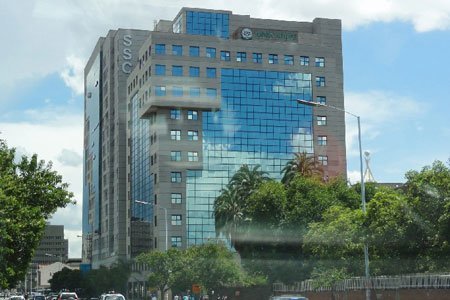
As we, as a nation, join the National Social Security Authority (NSSA) in celebrating two decades of existence this month, October 2014, we hopefully expect this vital national institution takes a fresh and introspective look at the way it interfaces with the public that it was created to serve. Sunday View with Desmond Kumbuka
As one of many Zimbabweans forced into premature retirement by prevailing economic circumstances, I have, in recent weeks, been compelled to visit that imposing edifice along Second Street Harare, that is the NSSA headquarters.
Much like most public service buildings, on arrival, the first encounter is with the security personnel at the reception desk directing people to the different departments of the authority.
On my first visit on April 15 2014, armed with my completed P3 Employee Registration Form and other relevant documents as proof of employment, I was directed to the ground floor service area where rows of chairs are provided for people waiting to be attended to.
No problem here as the queues moved fairly swiftly, and one would not spend more than an hour before being attended to.
When my turn arrived, a kindly gentleman duly stamped my forms and told me it would take at least three months for my pension claim to be processed and funds due to me would be deposited into my bank account.
That was the beginning of my frustrations.
After the three months, and there being no money deposited into my bank account, I went back to NSSA to inquire about the delay.
- Chamisa under fire over US$120K donation
- Mavhunga puts DeMbare into Chibuku quarterfinals
- Pension funds bet on Cabora Bassa oilfields
- Councils defy govt fire tender directive
Keep Reading
A lady in a glass cubicle on the ground floor told me there was a backlog in processing claims and I would need to wait another three months.
So, six months down the line, I again visited the NSSA offices when no money had been deposited into my account, and I was then told that there would be further delays in processing my claim as a letter had been written to me.
When I insisted that I needed to know the contents of the said letter, she said she had no idea because such letters originated from management “upstairs”.
I returned home planning to revisit the offices the following day to find out details of the said letter.
Not surprisingly, in my mail box at home were two envelopes from NSSA, each containing a letter asking me to submit completed P3 forms and other proof of employment with regard to two other companies I had worked for prior to the last one before retirement.
I was taken aback because I could not understand why it had taken NSSA six months to realise that the documentation I provided was inadequate to process my claim. In any case, the companies referred to which I had worked for more than 10 years prior had long shut down.
When I went back to NSSA to inform them of this position, a helpful lady then explained to me the course of action to take in my circumstances, which was to submit a sworn affidavit stating the companies I had worked for which had closed down.
When I went to tender the required affidavit two days later, lo and behold, — a new nightmare awaited me. A gentleman on the ground floor, clad in a yellow T-shirt commemorating the authority’s 20 years of service, ushered me to an office on the second floor, where I was taken to another office on the first floor, and was about to be sent back to the ground floor when I protested. I was then taken to an office on the first floor where I explained my predicament to yet another officer.
The man, who provided his name, then told me to leave the documents with him and to check with him again in December — exactly eight months since I first lodged my claim.
I think this is grossly unfair and insensitive to the needs of people who, through no fault of their own, are forced to rely on the measly pensions for sustenance. NSSA boasts an impressive investment portfolio and is in a position to employ more staff to provide essential services to its clientele.
It must be appreciated that it is our contributions to the authority that have enabled it to make the investments, some of which are clearly questionable if recent reports that the pensions administrator had to write-off US$5,6 million in loans inherited from the defunct Capital Bank Corporation Limited are anything to go by.











